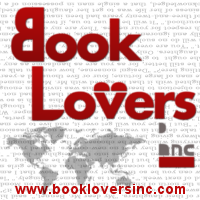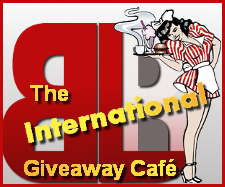Book Lovers Inc.
Romance Novel Reviews, Author Interviews, Commentary
Genres 101: The world is ending!! (A.K.A. Dystopian and Apocalyptic Fiction)
As you may have noticed, Speculative Fiction is a pretty large bag of mixed tastes. Today, I thought (since I’m currently reading Wither by Lauren DeStafano and have recently read other books that fit into these categories) that we’d take a look at Apocalyptic, Dystopian, and, because it usually is linked with dystopian, the Utopian novel, too. Utopian aside for a moment, the other two sub-genres have a fairly common element: life is bleak, if there’s still any life around.
First up, there’s Apocalyptic and Post-Apocalyptic Fiction. Apocalyptic novels, by definition, are set as the end of civilization is iminent, be it from plague, nuclear war, impending disaster (as I write this I have Aerosmith singing “I Don’t Wanna Miss a Thing”, in my head, as a large meteor is bearing down on earth). Whatever the cause, it will change life on Earth as we know it. Post-Apocalyptic takes place after the disaster, whether immediately, highlighting how survival must be attained (I’m thinking of Cormac McCarthy’s The Road) or much later, showing life has changed greatly and signs of technology have all but gone. In Post-Apoc novels, often history has been “forgotten or mythologized”. I have a curious example for the “Post” category: Erin Durante’s Damewood Trilogy, which takes place in a time that seems like 16th or 17th century living, complete with castles, frilly ball gowns, et al. But reading on, you realize the world has regressed from modern society back to the antiquated style of living.
Dystopian novels are often linked with the apocalyptic theme because they also involve changes in society that create an unbearable atmosphere for most “normal” living humans (the rich, most religious, most subservant, etc., are usually exempted from the harrowing life that is the new norm). Again, the future is dismal, but now for social or political reasons versus catastrophe. The best example I have for dystopian is Margaret Atwood’s The Handmaid’s Tale, but there seems to be a popular trend in YA books now, with Lauren Oliver recently releasing Delirium
, where love is a curable virus, and of course, Lauren DeStefano’s Wither
, with a storyline that has science being the cause of a diminished life span for humans. Another similarity between the apocalyptic and dystopic genres, is that in Dystopian novels, usually the societal changes have affected outlying regions, making them uninhabitable…but perfect places for the resistances.
Utopian books, being the opposite of dystopian, sets the scene for a perfect world. This genre dates back to Plato’s The Republic, but is more identifiable (mostly because it has the name in the title :-p) in Sir Thomas More’s Utopia. I personally just bought a copy of More’s book to see what all the hullabaloo was about…I’ll let you know when I finally read it 😉 Interesting Wiki fact about utopia as a topic: before 1900 there were 400 novels written in this genre. So basically, as long as men/women have been writing novels, we’ve been searching for the perfect world.
Looking on Goodreads at what people have listed as Dystopian, Apocalyptic, and Utopian, it surprised me to see how many books within these categories that I actually own. Why? Because every time I read one, I grumble about how depressing they are. But, really, what they do, they do very well. They make us think about how life is, how it could be, and most importantly, to not take our world for granted, regardless of how imperfect it is.
Share This Post
Subscribe and stay up-to-date
10 Comments
« Review: "Force Recon Beacon Bayou", Anthology Next Post
Review: Eleven Scandals to Start to Win a Duke’s Heart by Sarah MacLean »



















 Blog RSS Feed
Blog RSS Feed Follow Me on Twitter
Follow Me on Twitter My Facebook
My Facebook
Nice breakdown of meta-world novels (one of my favourite kinds).
Cheers,
Tracy
@Tracy – Thank you! Did I miss anything important? lol
Great post lady! Very informative… I do the exact same thing! Everytime I finish a dystopian/apocalypse type book I'm all depressed!
But the people who write them DO write them so well that's it's totally worth it!
You've just created a masterpiece(really!)by summarizing it in ONE sentence:
"But, really, what they do, they do very well. They make us think about how life is, how it could be, and most importantly, to not take our world for granted, regardless of how imperfect it is."
Love your post.
Oh I'm so surprised all the time how many categories there are in one genre. It's unreal! So many different themes to choose from. 🙂 But I like seeing posts like this from time to time. 🙂 It always refreshes the terms for me. Thanks!
Reading one too many of these is why I starting reading romances in the first place.
Post-apocalyptic: "The Dead-Tossed Waves" by Carrie Ryan (with zombies)
Dystopian: "Tender Morsels" by Margo Lanagan
Both are excellent YA books but they just depressed me so.
@Bookish Brunette – Thank you! It's true, right? As hard as they are to read, the message sticks with you.
@Sorilla – Aw, shucka! "masterpiece"?! I'm blushing 🙂
@Melissa – Variety is the spice of life, right? *g* It's nice to have various genre interests if you ever become bored with any particular one.
@Sheree – Gosh! I have Dead Tossed Waves (and Forest of Hands and Teeth) on the shelf. These harder topics definitely need balance with something lighter 🙂
I have to be ready to read such dire material. Now in my life is not the time. I will keep these books in mind though.
marypres@gmail.com
I wonder what it says about me that I don't find the post-apocalyptic and dystopian fiction to be all that depressing…..
Thanks for sharing!